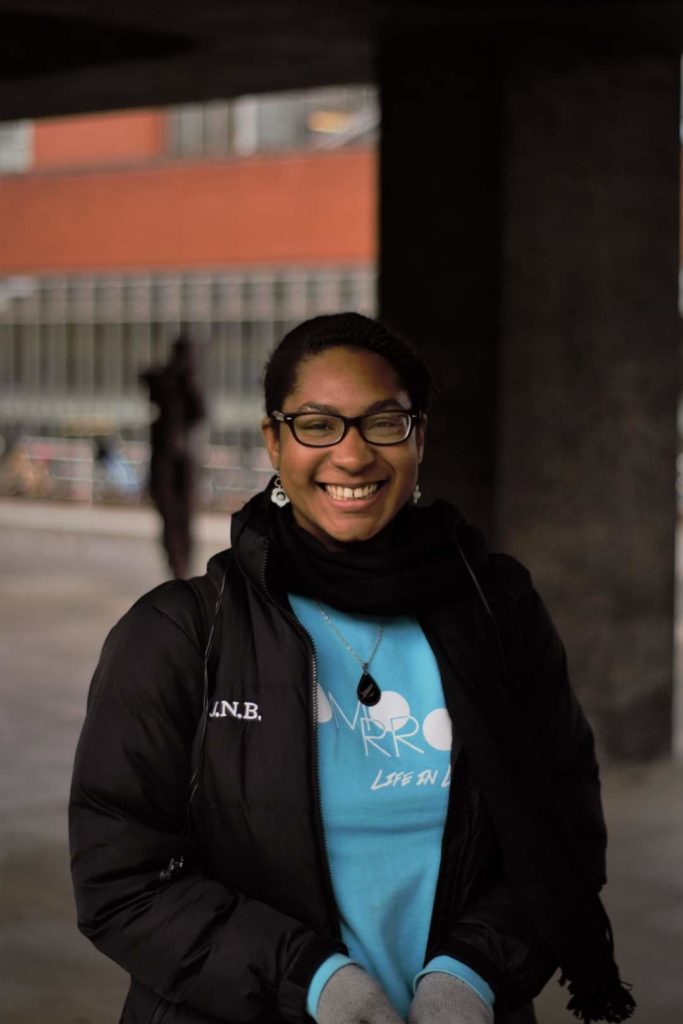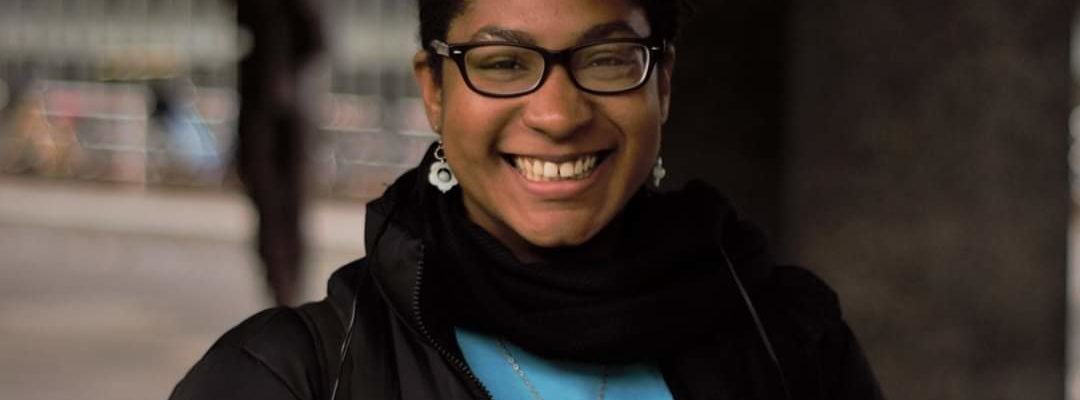WHO ARE YOU AND WHAT DO YOU DO IN CAMBRIDGE?
My name is Joanna Boxill and I am a second year MMLL-er at Trinity Hall. I am an international student from Trinidad and Tobago and I always rep the red, black, and white. And yes, I row.

TELL US ABOUT SOMETHING THAT MATTERS TO YOU
I love stories. Books, movies, people’s life stories. I get so involved in fiction stories and relate to characters as if they were real – it isn’t uncommon for someone to happen upon me shouting at the pages of a book or at a screen if I think a character is doing something wrong or is mistreating my favourite character. People’s life stories are by far the most amazing though. Real lives, real experiences – I love connecting with people and sharing experiences with them. That is part of the reason why I love languages! It helps me connect with people from different cultures and see the world through their eyes.
WHAT’S YOUR STORY?
If I had to put a genre to my story, I would choose “romantic comedy”. Not because there is much romance in it, and not because it is especially humorous (although I flatter myself that I am). I would choose this genre because I was that character who knew someone their whole life, took them for granted, and went chasing after someone (or in my case something) else. Then to my surprise, what I was chasing after failed and I was left questioning my whole purpose, and that was the moment when I finally realised just how special and important this person I knew all my life really was. Classic rom-com format.
So, how did it play out? Well, I grew up in a Christian family. I could recite bible verses from memory. I could list all 66 books in the Bible in about a minute and a half. I knew most Bible stories like the back of my hand. So, I had a fairly good idea of who Jesus was and what He had done. But honestly, it did not make much of a difference to my life. I knew about God, but what He thought was not the driving force in my life. Instead, what drove me was a desire to prove my worth by being the best. I found what I was good at and I milked it for all it was worth. I made what I did who I was. Competitive gymnast. A+ student. That was how I would think of myself; it was my whole identity.
Then came the climax. In the space of a few months, I found out that I would have to stop competing and that I might not qualify for the subjects I wanted to do at GCSE. Whenever I met up with anyone I knew from gymnastics, even though nothing essentially had changed about me, I felt this deep inferiority. I found it hard to continue being friendly with people who I knew were well on their way to A*s. Moments like these were compounded and at that point I felt like the very core of me was being questioned. I realised that I had built my identity on an unstable foundation that was not able to cope with challenges.
Around this same time, I was also coming to grips with what faith in Jesus really meant and how much the Bible was challenging my worldview at the time. In the midst of my confusion and worry about my worth, two verses from the Bible really caught my attention and opened my eyes to something amazing. Romans 5:8 says:
“But God demonstrates his own love for us in this: While we were still sinners, Christ died for us.”
Maybe this needs a bit of explanation to show why I just could not get past it. Main character number one: God the Father – holy, all-powerful, cannot have sin in His presence, creator of the world. Main character two: me – an okay person at best, but definitely not living according to the rules set out by God in His Word, i.e. a rebel in God’s kingdom. Main character three: Christ – God the Son, i.e. God who came to earth as man. Now, even if you don’t believe Christianity, you cannot deny that it is so striking that an all-powerful king (God) would see a rebel in His kingdom (me) and instead of doing away with them, he comes into his kingdom (Christ) and dies to take the rebel’s just punishment, because he loves them. They have done nothing to deserve it. But He loves them. And then I read Romans 8:38-39:
“For I am convinced that neither death nor life, neither angels nor demons, neither the present nor the future, nor any powers, neither height nor depth, nor anything else in all creation, will be able to separate us from the love of God that is in Christ Jesus our Lord.”
I was stunned. First, I have access to a love that was not based on anything I did. It was based on a person who the Bible elsewhere says never changes. Not only that, but this love was unbreakable. I could not be separated from it. I did nothing to earn it so there was nothing I could do to lose it. There was nothing that anyone could do to take it from me. These realisations were crucial in my decision to follow Christ wholeheartedly – not just saying I was a Christian but actually living it and letting it change my mentality.
I realised the only thing that does not change in life is God and His love for me. Therefore, I could build my life on Him and know my foundation was secure and would stand even in the midst of life’s challenges, unlike the foundation of achievement I had depended on before. I could place my whole identity in who I am in Christ. A daughter loved by her Heavenly Father.
IS THE STORY OF JESUS GOOD NEWS IN A WORLD LIKE THIS?
Back in term time, I cannot begin to number the amount of times I resented having to wake up and leave home to go to a lecture or go do training. Yet being limited in what I can do because of this lockdown seems like the worst punishment at times. What makes it so hard to just be? Why do we want to do… something… anything? Interestingly enough, I find such a striking example of this in the differing ways society treats people. We value the young, the rich, the intelligent, those who are skilled and talented – the so-called contributors to society. But the elderly, those who have dementia or Alzheimer’s, the differently abled, the poor, the unskilled labourers, the refugees? We put them in homes, we house them on the outskirts. We do not see their value. They “can’t do anything”. As a society, we have a major problem seeing the worth and value in just “being”.
It is no surprise then, that growing up in a culture where we see people being rewarded for what they do, we unconsciously believe that our worth is rooted in what we can produce. Life becomes all about showing that we are valuable, that we are worthwhile. No wonder we struggle so much when we are told that we can no longer do much. We are not struggling with a lack of movement, really. We are trying to hold on to a sense of worth. Of value.
This is another reason why that verse in Romans 5:8 is so striking. By society’s view, I (the sinner) should not be worth anything to God. In fact, I am unprofitable and detracting from His kingdom. Yet He loves me. Despite what I have done against Him. Whether I do anything today or tomorrow, or not. Because of lockdown, many of us have much lower levels of productivity. But I believe that you are still valuable, still worthwhile. Because you are loved by God. A friend who also went to Cambridge put it like this. He said, “I realised that if I never got out of bed, never moved from that spot, never did any work, that God would look at me and love me the exact same way that He always does.” I am finding such peace and joy in that unconditional love. If God never changes, then who I am never changes and I never have to do something to prove my worth. This is GREAT news for a world in lockdown! We cannot do much of anything, and it is tough. But we can have peace knowing that we are still valuable. Because God loves us. And this love is extended to all people – no exceptions! And all we have to do to have this peace and love for ourselves is accept the gift of salvation offered by Jesus.
Such an unconditional love deserves a response, don’t you think?
If you’d like to find out more about the Christian perspective on achievement, check out this Cambridge CU Big Questions talk from last year:
